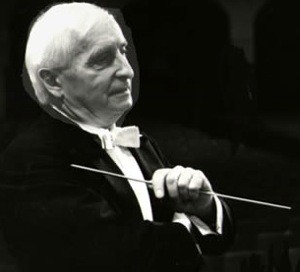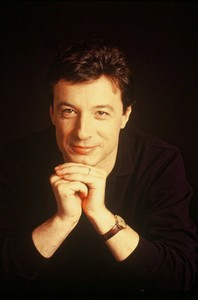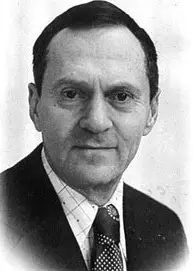
Václav Neumann |
Vaclav Neumann

“A fragile figure, a thin head, ascetic features – it is difficult to imagine a greater contrast with the mighty appearance of Franz Konwitschny. A contrast, however, begs itself, since the Prague resident Vaclav Neumann has now succeeded Konvichny as the leader of the Gewandhaus orchestra, wrote the German musicologist Ernst Krause a few years ago.
For many years, Vaclav Neumann has given his talent to two musical cultures at once – Czechoslovak and German. His fruitful and multifaceted activity unfolds both in the musical theater and on the concert stage, covering an ever wider range of countries and cities.
Until relatively recently, Neumann was little known – today they talk about him as one of the most gifted and most original conductors of the post-war generation.
The artist’s birthplace is Prague, “the conservatory of Europe,” as musicians have long nicknamed it. Like many conductors, Neumann is a graduate of the Prague Conservatory. His teachers there were P. Dedechek and V. Talikh. He began by playing orchestral instruments – violin, viola. For eight years he was a member of the famous Smetana Quartet, performing viola in it, and worked in the Czech Philharmonic Orchestra. Neumann did not leave the dream of becoming a conductor, and he achieved his goal.
For the first few years he worked in Karlovy Vary and Brno, and in 1956 he became the conductor of the Prague City Orchestra; at the same time, Neumann performed for the first time at the control panel of the Berlin Komische Oper Theater. The illustrious director of the theater, V. Felsenshtein, was able to feel in the young conductor the traits related to him – the desire for a true, realistic transfer of the work, for the fusion of all the components of a musical performance. And he invited Neumann to take the post of chief conductor of the theater.
Neumann remained at the Komish Oper for more than five years, from 1956 to 1960, and subsequently performed here as a touring conductor. Working with an outstanding master and one of the best ensembles gave him an extraordinary amount. It was during these years that a peculiar creative image of the artist was formed. Smooth, as if going “with music”, movements are combined with a sharp, clear accent (in which his baton seems to be “aiming” at an instrument or group); the conductor pays special attention to the gradation of sounds, achieving great contrasts and bright climaxes; leading the orchestra with economical movements, he uses all the possibilities, up to facial expressions, to convey his intentions to the orchestra members.
Outwardly ineffectual, strict conducting style of Neiman has a great exciting and impressive power. Muscovites could be convinced of this more than once – both during the performances of the conductor at the console of the Komische Opera Theater, and later, when he came to us with the Prague Philharmonic Orchestra. He has been working with this team regularly since 1963. But Neumann does not break with the creative teams of the GDR – since 1964 he has been working as the musical director of the Leipzig Opera and the Gewandhaus Orchestra, and has been conducting performances at the Dresden Opera.
Neumann’s talent as a symphonic conductor is especially evident in the interpretation of the music of his compatriots – for example, the cycle of poems “My Homeland” by Smetana, Dvořák’s symphonies and works by Janáček and Martinou, the national spirit and “complex simplicity”, which are close to the conductor, as well as modern Czech and German authors. Among his favorite composers are also Brahms, Shostakovich, Stravinsky. As for the theater, here among the best works of the conductor it is necessary to name “The Tales of Hoffmann”, “Othello”, “The Cunning Chanterelle” in the “Comische Opera”; “Katya Kabanova” and “Boris Godunov” in the version of Shostakovich, staged by him in Leipzig; L. Janacek’s opera “From the Dead House” – in Dresden.
L. Grigoriev, J. Platek, 1969





